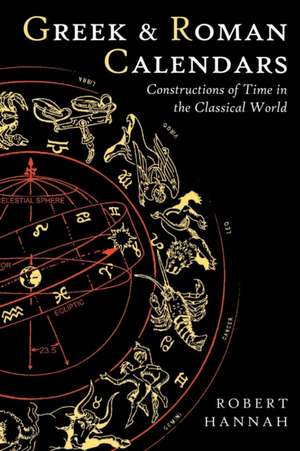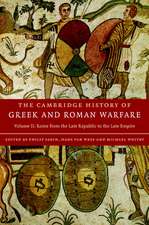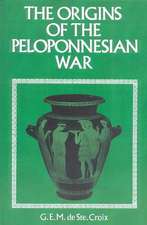Greek and Roman Calendars
Autor Robert Hannahen Limba Engleză Paperback – 9 mar 2005
Preț: 236.63 lei
Preț vechi: 257.15 lei
-8% Nou
Puncte Express: 355
Preț estimativ în valută:
45.28€ • 49.34$ • 38.15£
45.28€ • 49.34$ • 38.15£
Carte tipărită la comandă
Livrare economică 23 aprilie-07 mai
Preluare comenzi: 021 569.72.76
Specificații
ISBN-13: 9780715633014
ISBN-10: 0715633015
Pagini: 192
Dimensiuni: 154 x 232 x 11 mm
Greutate: 0.31 kg
Ediția:New.
Editura: Bloomsbury Publishing
Colecția Bristol Classical Press
Locul publicării:London, United Kingdom
ISBN-10: 0715633015
Pagini: 192
Dimensiuni: 154 x 232 x 11 mm
Greutate: 0.31 kg
Ediția:New.
Editura: Bloomsbury Publishing
Colecția Bristol Classical Press
Locul publicării:London, United Kingdom
Notă biografică
Robert Hannah is Associate Professor in the Department of Classics at the University of Otago, New Zealand. He is the author of over 50 publications in the fields of Roman art and archaeology, Greek and Roman archaeoastronomy, the Classical tradition, and virtual reality in Classical art.















